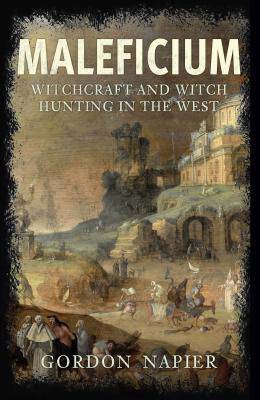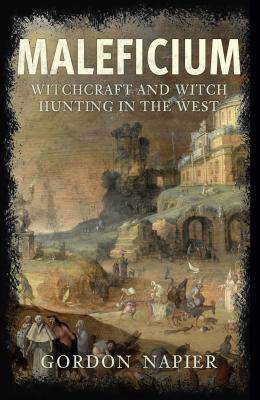
- Afhalen na 1 uur in een winkel met voorraad
- Gratis thuislevering in België vanaf € 30
- Ruim aanbod met 7 miljoen producten
- Afhalen na 1 uur in een winkel met voorraad
- Gratis thuislevering in België vanaf € 30
- Ruim aanbod met 7 miljoen producten
Zoeken
€ 26,95
+ 53 punten
Omschrijving
Europe in the 1500s and 1600s was an ascending, expanding civilisation, poised to become globally dominant, and destined to produce the Enlightenment and the Scientific Revolution. Confident mercantile republics and opulent monarchies alike seemed to be flourishing. But it was also a Devil-haunted society. Witches and imps were not merely the stuff of stories, used by mothers to frighten their children into obedience. Many people believed in a real conspiracy of witches, in league with the cloven-hoofed Devil, flying on broomsticks, having familiar spirits and casting harmful spells. People from all classes, from peasants to kings, attributed calamities to malevolent witchcraft, and anyone (though it was of course mostly women) could be suspected of being a witch. Witch hunts flared up, particularly in German lands. Mass persecutions culminating in burnings - seemingly insane and monstrous acts of societal self-mutilation on a grand scale - were accepted as acts of faith, justice and collective self-defence. Who were the witch hunters? Where did they get their ideas? Did witch hunts mask politically motivated persecutions? Were there witches? Were witches a secret society, or a surviving shamanic religion? Did initiates induce hallucinations of night-flights and contact with supernatural beings? Or does torture and the preconceived notions of the witch hunters account for the consistent confessions secured from suspected witches?
Specificaties
Betrokkenen
- Auteur(s):
- Uitgeverij:
Inhoud
- Aantal bladzijden:
- 288
- Taal:
- Engels
Eigenschappen
- Productcode (EAN):
- 9781445665108
- Verschijningsdatum:
- 15/07/2017
- Uitvoering:
- Hardcover
- Formaat:
- Genaaid
- Afmetingen:
- 156 mm x 234 mm
- Gewicht:
- 538 g

Alleen bij Standaard Boekhandel
+ 53 punten op je klantenkaart van Standaard Boekhandel
Beoordelingen
We publiceren alleen reviews die voldoen aan de voorwaarden voor reviews. Bekijk onze voorwaarden voor reviews.







